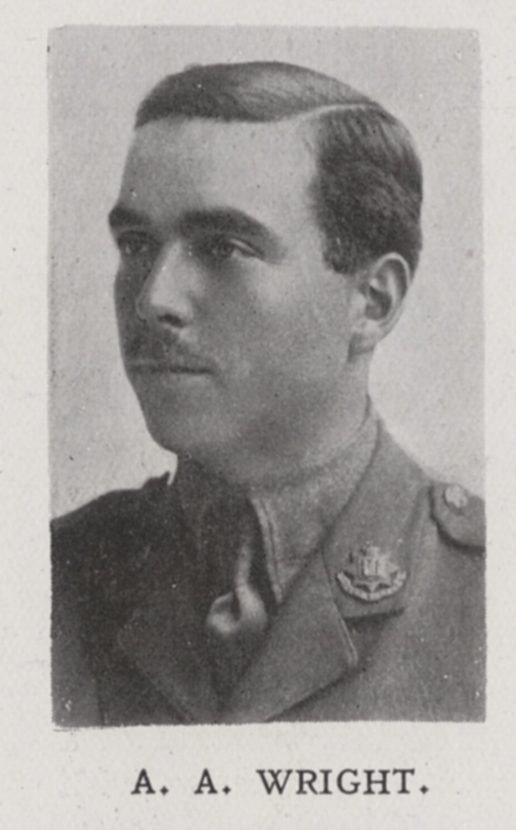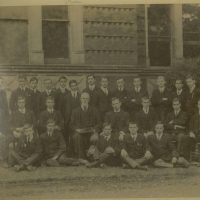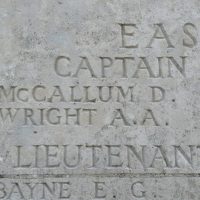Wright, AA
(1889 - 1918)

Key Facts
DATE OF BIRTH:
13th March 1889
YEARS ATTENDED THE COLLEGE:
1900 - 1908
HOME ADDRESS WHEN AT THE COLLEGE:
6 Seymour Villas, Anerley
REGIMENT
3rd Battalion, East Surrey Regiment
FINAL RANK:
Captain
DATE OF DEATH:
4th September 1918
AGE AT DEATH:
29
WHERE HE DIED (or was wounded)
Ypres
LOCATION OF GRAVE OR MEMORIAL:
Tyne Cot Memorial. Panel 79 to 80 and 163A
Captain Alan Austin Wright
Alan was born on March 13th 1889, the firstborn child of iron merchant William Wright and his wife Lizzie. He joined the College in the spring of 1900, not long after his eleventh birthday, and would go on to be at Dulwich for the next eight years, until the summer of 1908; in 1907 he had been a member of the College Shooting VIII. After leaving Dulwich he went up to Merton College, Oxford, where he had attained a Classical Scholarship, and ultimately went on to graduate in 1912 with a 1st in “Mods” and a 2nd in “Greats”. That summer he joined the Colonial Civil Service, and by the end of the year had been assigned to the Malay States. He held a post in Kuala Lumpur for his first two months, before taking the role of Assistant District Officer at Kajang, and later becoming a magistrate at Kuala Selangor.
In February 1915 Alan left his position as a magistrate in order to return to England and enlist for military service; shortly after his arrival he was gazetted to a commission in the East Surrey Regiment. He went over to the front for the first time that August, and served in the trenches for almost a year, until wounds received during the taking of Delville Wood during the early days of the Battle of the Somme necessitated a period of recuperation back in England. During his recovery he was promoted to Lieutenant, and upon his return to his unit was appointed Battalion Bombing Officer, before finally returning to France in October 1917. Shortly afterwards he was reassigned to Italy, where he served through the winter of 1917-18, before being sent back to the Western Front in response to the German offensive of March 1918. He was on the front line around Poperinghe and Kemmel for the rest of that summer, before being killed in action near Ypres on September 4th 1918. He was survived by his widow Marguerite, whom he had married in October 1916 whilst invalided back in England, and their son.

